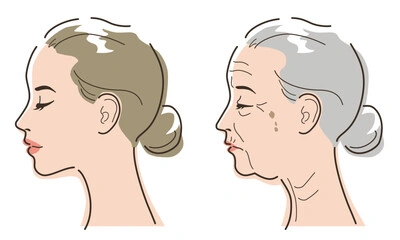The Role of a Geriatrician in Managing Chronic Health Conditions
28-09-24
As people age, they become more susceptible to chronic health conditions that require specialized care. Geriatricians are medical professionals who specialize in caring for older adults and managing their chronic health conditions. The role of a geriatrician in managing chronic health conditions is vital to ensuring the health and well-being of elderly patients.
Chronic health conditions such as heart disease, arthritis, diabetes, and Alzheimer's disease are more common in older adults. Geriatricians are trained to provide comprehensive care to older adults with these conditions. They work closely with patients to develop a personalized treatment plan that takes into account their unique needs and medical history.
Geriatricians have specialized training in the unique needs of older adults. They understand the complex medical needs that come with aging and are equipped to manage multiple chronic health conditions simultaneously. They are also trained to manage the side effects of medications and ensure that older adults receive the right medications at the right dosages. Watch the emerging role of geriatricians for elderly from Dr. Sajesh Asokan.
One of the most critical roles of a geriatrician is to manage the multiple chronic health conditions that older adults may have. This can be a complicated process, as older adults often have several chronic conditions that may require different treatment plans. Geriatricians work closely with patients and their families to develop a comprehensive care plan that takes into account all the patient's medical needs.
Geriatricians also work with other medical professionals to ensure that older adults receive the best possible care. They collaborate with specialists such as cardiologists, neurologists, and endocrinologists to develop a comprehensive treatment plan for patients. They also work with nurses, physical therapists, and other healthcare professionals to provide coordinated care that meets the unique needs of older adults.
In addition to managing chronic health conditions, geriatricians also focus on preventing health problems before they occur. They work with patients to develop healthy lifestyle habits, such as a balanced diet and regular exercise. They also provide preventive services such as vaccinations, cancer screenings, and osteoporosis testing.
Geriatricians also play a vital role in managing the mental health of older adults. They understand the unique mental health needs of older adults and are trained to manage conditions such as depression and anxiety. They also provide counseling and support to patients and their families to help them cope with the challenges of aging.
Finally, geriatricians are also trained to manage end-of-life care for older adults. They work closely with patients and their families to ensure that they receive compassionate and dignified care at the end of life. They provide support and guidance to families as they make decisions about end-of-life care and help to ensure that the patient's wishes are respected.
In conclusion, geriatricians play a vital role in managing chronic health conditions in older adults. They are trained to manage the complex medical needs that come with aging and are equipped to provide comprehensive care to older adults with multiple chronic health conditions. They work closely with patients and their families to develop a personalized treatment plan that takes into account the unique needs of each patient. Geriatricians also focus on preventing health problems before they occur, managing the mental health of older adults, and providing end-of-life care that is compassionate and dignified. Overall, the role of a geriatrician in managing chronic health conditions is essential to ensuring the health and well-being of older adults.



































